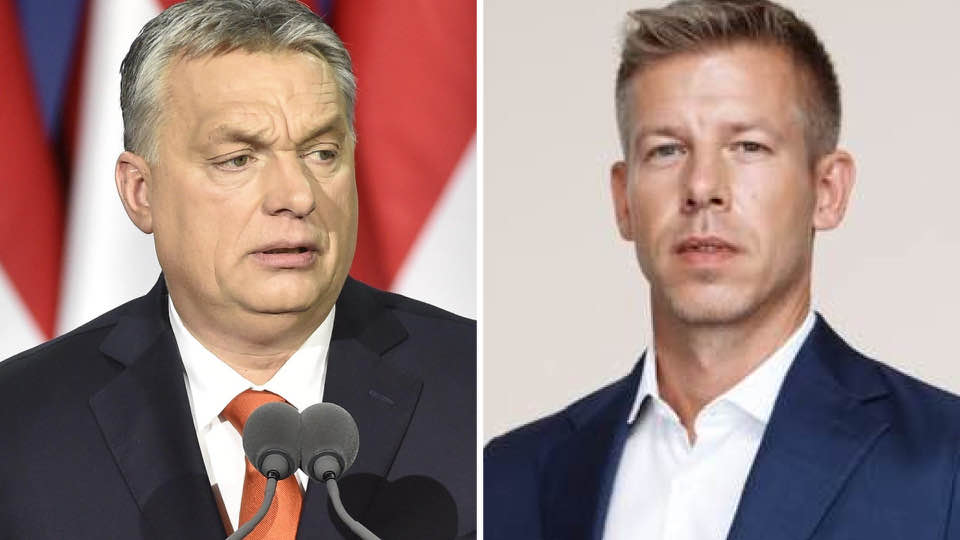An analytical piece in the French conservative daily Le Point offers a fresh perspective on Viktor Orbán’s current challenges, asserting that the Hungarian Prime Minister is navigating one of the most turbulent phases of his political career.
According to the article, opinion polls, economic difficulties and domestic and foreign policy challenges are all contributing to Orbán’s sharp decline in popularity. The article draws data from a recent survey by Medián, which shows that the opposition Tisza Party led by Péter Magyar, has gained a significant lead over Fidesz.

Public opininon: A change brewing?
According to Index, the French newspaper cited Medián’s survey, which showed that the Tisza party already leads Fidesz by 11 percentage points among voters who are sure of their vote. In recent weeks, Fidesz’s support has plummeted from 32% to 27%, a significant drop. At the same time, the opposition party has consolidated its lead, which could pose a serious challenge to Orbán’s fourteen-year rule. The paper emphasised that the scale of the change increasingly suggests that Hungarian voters are ready to turn away from the current government.
Orban’s government is also under pressure in its relations with the EU. The newspaper speculates that Hungary could lose up to EUR 1 billion in EU funds by the end of the year if it fails to implement reforms demanded by Brussels. The article details that these reforms concern transparency in public procurement, the fight against corruption and compliance with conflict-of-interest rules. The freezing of EU funds, which currently stand at around EUR 16 billion, could put Hungary under severe financial pressure.
The French newspaper also pointed out that Hungarian voters’ political choices are currently heavily influenced by the economic difficulties they face in their daily lives. Following the record 17% inflation in 2023, figures dropped to 4% in 2024, against an EU average of 2.3%. The European Commission forecasts that Hungary’s public debt could reach 74.3% of GDP this year, driven by low GDP growth and a high budget deficit. These indicators paint a negative picture of the state of the economy and undermine the government’s economic performance.
A new opposition: Péter Magyar and the Tisza Party
Le Point has a special focus on Péter Magyar, the leader of the Tisza Party, who was once a close ally of Viktor Orbán but has now become one of his main political opponents. Péter Magyar’s strategy differs from previous opposition approaches: rather than focusing on rule of law issues, he is drawing attention to the decline in Hungarian living standards and public services. In his speech to the European Parliament, for instance, Magyar compared Hungary’s minimum wages with those of other countries in the region, highlighting the weaknesses of the government’s economic policies.

The state of the Hungarian health sector emerges as a pressing concern in Le Point’s analysis. Péter Magyar delivered a scathing critique of the system’s deficiencies, highlighting that one in three Hungarians under the age of 65 faces significant challenges due to a shortfall of 40,000 nurses. Hospitals often lack essential supplies such as disinfectants and cleaning agents, underscoring the sector’s critical condition. Furthermore, the emigration of young people—central to Péter Magyar’s broader critique—has profound implications not only for Hungary but also for several countries across the region. However, the potential social and economic repercussions are particularly acute for Hungary.
In response to these challenges, Viktor Orbán may increasingly pivot away from negotiating with the European Union and instead seek alliances with the United States, notably with Donald Trump. According to Le Point, this strategic shift could gain momentum as the next general election approaches, driven both by mounting domestic political pressure and the ongoing uncertainty surrounding EU funding.
Read also:
No matter how much public opinion turns against Fidesz it is completely within their power and their history of corrupt behaviour to alter election results in order to stay in power. They will not go away quietly. Russian election interference as we have seen in Georgia, Moldova and Romania is certain to happen. Slovakia was subject to an ongoing propaganda campaign by Russia prior to Fico’s election. This is the world we live in. Russia has perfected the art of disinformation for over a century and they are masters at using it to destabilize democratic countries and push voters to political actors that they cultivate ties with often with bribery which I am sure is the case with Fidesz.
Will there even be an election? Why bother when there will be a fabricated crisis.
Doomed.
The French have not been right about anything since their revolution. Peter M is a beta male unknown to the world whereas Orbán is recognised the world over as an expert diplomat and politician who fights tirelessly for peace.
I’m suggest Peter Magyar is anything but a beta male, he’s an alpha male and they’re trying to use evidence of this against him. Fact is, he has what it takes, either to defeat the incumbent government at the ballot box or to lead the country. Momentum is firmly on his side, he’s younger, fitter, smarter and more agile than his competitor, both tactically and intellectually. Orban might claim to ‘fight for peace’ but he’s accomplished nothing in this regard other than expelling a lot of hot hair and upsetting all the country’s allies.
France is in a mess. Innocent people are beheaded by Muslim migrants. Antisemitism is on the rise. Should French news media not concentrate on the problems in the failed French Administration instead of diverting the attention of the readers from the disaster that France is.
No, it shouldn’t dear Maria. Apart from the fact that a free press covers what it wants and the press in any given country has an international as well as domestic focus, highlighting the transgressions of the Hungarian government serves to illustrate how lucky the French are to have the government they do compared to elsewhere. Quite apart from which, did you not see what they achieved with the Notre Dame, on time, on budget with even a donation surplus? I have to wonder how many Fillers Hungarian oligarchs would donate if the same fate were to befall St. Stephen’s in Budapest.